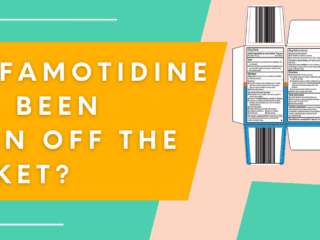Generic Name: Amitriptyline
Brands: Amitid, Amitril, Elavil, Endep, and Vanatrip
Class: Tricyclic antidepressant
Availability: Prescription only
Molecular Formula: C20H23N
Substance UNII: 1806D8D52K
What Is Amitriptyline?
Amitriptyline is a tricyclic antidepressant. It was the generic name of several trade name drugs that have been discontinued, including Amitid, Amitril, Endep, and Vanatrip. Amitriptyline is still available as a generic medication.
What Is Amitriptyline Used For?
Amitriptyline is used to relieve the symptoms of depression. It is associated with greater success in easing symptoms of major depressive disorder compared to other types of depression. Other uses for it include the treatment of insomnia, nerve pain, and migraines. The FDA has not approved the use of amitriptyline for individuals who are under 12 years old.
How Does Amitriptyline Work?
The exact mechanism of action for amitriptyline is unknown in humans. Research has shown that amitriptyline might help increase the levels of certain neurotransmitters or chemicals in the brain, including serotonin and norepinephrine by preventing their reabsorption. Serotonin helps with mood regulation, while norepinephrine provides the brain with energy and helps improve attentiveness or alertness.
How Long Does It Take for Amitriptyline to Work?
As with other antidepressants, amitriptyline can take several weeks to provide relief from the symptoms of depression, which is why it is important to take this medication every day. Those who are not experiencing relief after taking this medication for around 6 weeks should talk to their medical provider.
Do Not Use Amitriptyline If:
There are several situations where this medication may not be the right choice for you. According to the FDA, the following should not use amitriptyline:
- Individuals with a history of hypersensitivity to amitriptyline
- Individuals who are currently taking monoamine oxidase inhibitors (MAOI), since serious convulsions and deaths have been associated with patients taking MAOIs and tricyclic antidepressants simultaneously
- Individuals who have had a heart attack and are still in the acute recovery phase
- Amitriptyline should not be used with cisapride, since this has been associated with a higher risk of cardiovascular problems, including arrhythmia (abnormal heartbeat)
- Amitriptyline may increase the risk of suicidal thoughts and behaviors in children and young adults; those taking this medication should be watched closely for signs of suicidal thoughts or behaviors or sudden changes in behavior
Please note that this list may not be complete, and there may be other situations where use of this drug is not advisable.
Disclaimer: this article does not constitute or replace medical advice. If you have an emergency or a serious medical question, please contact a medical professional or call 911 immediately. To see our full medical disclaimer, visit our Terms of Use page.








